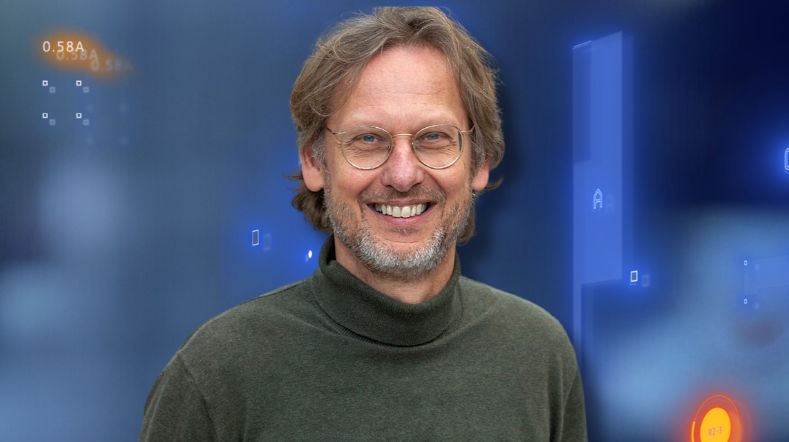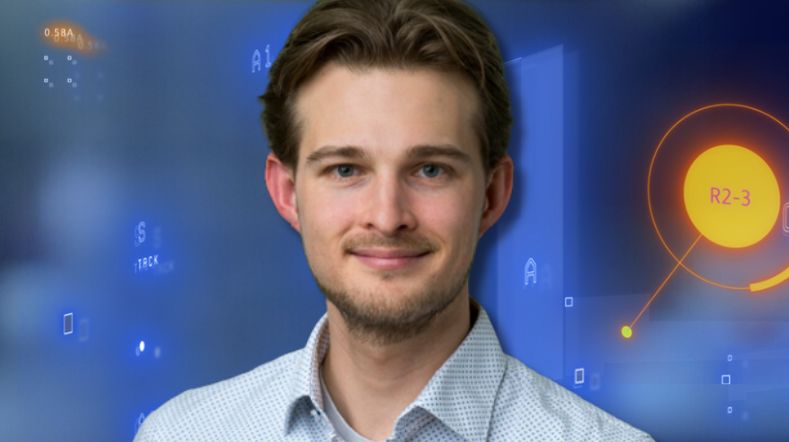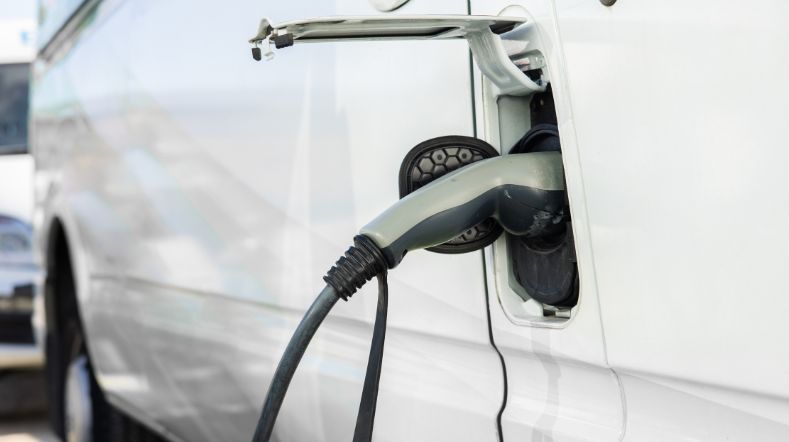Our impact
Impact means that our customers and partners use and implement the knowledge we develop in the best possible ways. We strive for maximum impact, especially in solving major societal challenges. Moreover, we want to increase our impact in the coming years. Not by wanting to do or know everything ourselves, but by developing integrated solutions together with other parties.
How do we create impact?
We focus on topics where we can really make a difference. Where we are distinctive. Subjects of sufficient scale, where TNO has a 'right to play', due to its knowledge and position. Which are of multidisciplinary nature and appeal to our skills. What we do, we do well, or we don't do it at all.
We create impact in many areas, but our contribution to solving major social issues is often difficult to measure. That is because the large-scale application often follows years later. In addition, innovation is not only the sum of our (partial) contributions, but also those of other parties.
Positive impact and sustainable development
Social challenges are increasingly being approached from the perspective of the United Nations' Sustainable Development Goals (SDGs). That is why we have made our contributions to SDGs transparent. In this way, we are committed to the global agenda for sustainable development and positive impact on society. Our model highlights the most relevant SDGs for TNO.
Are you curious about examples of our social contribution? Take a look at the highlighted SDGs and discover how we contribute to positive impact and sustainable development.
TNO accepted as a signatory of the United Nations Global Compact
We are pleased to inform that TNO has been accepted as a Signatory of the United Nations Global Compact. We warmly welcome TNO to a global network of over 9,500 companies and 3,000 non-business participants that are committed to building a sustainable future.
The Sustainable Development Goals
- No poverty
- Zero hunger
- Good health and well-being
- Quality education
- Gender equality
- Clean water and sanitation
- Affordable and clean energy
- Decent work and economic growth
- Industry, innovation and infrastructure
- Reduced inequalities
- Sustainable cities and communities
- Responsible consumption and production
- Climate action
- Life below water
- Life on land
- Peace, justice and strong institutions
- Partnerships for the goals
SDG3: Good health and well-being
SDG3 is about ensuring healthy lives and promoting well-being for everyone at all ages. Important pillars are the prevention of premature deaths from communicable and non-communicable diseases, and mental illness. Our Healthy Living unit focuses on four areas; Youth, Work, Biomedical Health and Digital Lifestyle. Other units, such as Energy Transition and Industry, take into account the impact of their work on public health.
We developed a fast, cheap and reliable corona test that could detect the COVID-19 virus within an hour.
In order to prevent delayed development in children, we need a system that allows us to monitor their developmental progress. This is why we have developed the D-score. It now forms the scientific backbone for integrating the measurement data of child development from other countries.
TNO is well advanced in the development of a biosensor. This small device analyses a drop of blood to determine whether someone has, for example, been exposed to nerve gas, has an infectious disease, or has suffered a heart attack. Delta Diagnostic is our spin-off that is currently taking the sensor from the laboratory to the market.
Thanks to apps, sensors and data, we can measure the state of our body more and more accurately. TNO contributes to the development of these innovations. Research is aimed at smartly combining the measurements from different sensors and giving people control over what happens with their data.
In the Netherlands, more than 4,000 people die each year as a result of long-term exposure at work. With three quarters of the people it’s the result of exposure to hazardous substances. That is why TNO has developed the Substance Information System (‘Stoffen Informatie Systeem’).
An example in which collaboration with the business leads to great innovation in the area of health research.
Through improvement of methodologies, drug development can be accelerated. Read more about TNO's organ-on-a-chip technology.
The BoB project teaches children and adults that negative feelings are allowed and how to deal with them in a good way. Dealing with trauma and intense feelings through play and stories is the focus.
SDG7: Affordable and clean energy
SDG 7 is about ensuring access to affordable, reliable, sustainable and modern energy for all. Our Energy Transition unit works together with knowledge institutes, companies and the government on a carbon-free energy policy in the Netherlands. We deliver innovations from a engineering, social and policy perspective.
Support and acceptance in society are important elements for the success of the energy transition. We have published a white paper on energy poverty and how it can be measured, monitored and combated from a policy perspective.
The arrival of the world’s largest wind turbine – the Haliade-X 12MW on the Maasvlakte – heralds a new phase in the next generation of wind energy at sea. Experts from TNO have performed the assignment of an extensive measurement programme and reporting on behalf of owner GE Renewable Energy.
The development of solar energy is moving at lightning speed. The amount of solar power you can generate per surface is important. Researchers from TNO, TU Eindhoven and TU Delft have broken world records in this regard.
Our country needs to employ a climate neutral energy system by 2050. The question is if we are able to achieve that goal without radically transforming the economy or taking other drastic measures.
If the trend continues, wind turbines will have 145 meter blades by 2040. With longer blades, the same power is delivered with less wind when compared to the current generation of wind turbines.
What actions are currently there to significantly reduce CO₂ emissions? This question is central to the booster team 'Green chemistry, new economy' (‘Groene chemie, nieuwe economie’). An initiative in which TNO collaborates with major players in basic chemistry in the south of the Netherlands.
SDG8: Decent work and economic growth
The promotion of inclusive, sustainable economic growth and decent work is central to SDG8. On the one hand, this requires technological innovations to increase economic productivity. On the other hand, good working conditions and a safe working environment are important. Our Work & Health and Sustainable Productivity research groups are working on solutions and knowledge to enable people to work for as long as possible while also maintaining their health, engagement and productivity.
The labour market is changing rapidly, creating a mismatch between supply and demand. Together with partners, we have developed House of Skills. This digital tool helps the move towards a flexible labour market with equal opportunities by focusing on skills rather than qualifications.
We have addressed unemployment in the Netherlands and have taken our first steps towards applying our expertise in Sub-Saharan Africa, while forging new partnerships to increase employment opportunities for the region's young people and women.
The Dutch labour situation is constantly changing. We research these changes and their impact on productivity, innovation and employee health. During COVID-19 we will track the short- and long-term effects of the lockdown on the Dutch labour force.
An exoskeleton is a new technology that can, for example, reduce physical strain on workers' arms and lower backs. We published a position paper on exoskeletons (pdf) (pdf) to provide an insight into the current state of this technology.
Economic growth is important. Achieving social goals as well. The Netherlands is constantly looking for promising innovations in these areas. Good results are being achieved, especially at the regional level, and that is why TNO is investigating possible success factors for regional innovation ecosystems. Growth through the innovative power of regional ecosystems.
SDG9: Industry, innovation and infrastructure
SDG9 is about building a resilient infrastructure, promoting sustainable industrialisation, and encouraging innovation. Infrastructure - in terms of mobility, logistics and knowledge sharing - is fundamental to making progress on many of the other SDGs.
Our Mobility and Logistics expertise group aims to improve the well-being of society and the competitiveness of businesses by promoting the safety, efficiency and sustainability of mobility and logistics. Another important pillar of this SDG is modernising infrastructure and adapting industries to enable them to become sustainable. Our Energy Transition unit has developed four routes towards a sustainable and circular industry.
We have one of the first 5G test networks in Europe. By using this network's advanced capabilities, we are able to support the innovation ambitions of the telecom industry and other markets.
The STEPWISE and FReSMe projects are aimed at demonstrating advanced CO2 removal technology for the iron and steel industry, thereby reducing the carbon footprint of steel production.
The ORCA EU project focuses on hybrid trucks which emit 40 percent less carbon dioxide, while being no more expensive than traditional trucks.
Together with a number of partners, we are developing the Smart Data Factory for logistics. This defines how logistics information can be exchanged digitally and used globally in a standardised, secure and reliable manner.
The transition to a sustainable ecosystem of smart, digital factories and smart chains will be a success if all parties involved meet a few important conditions. For example, it is essential that everyone in the chain works together and starts digitization immediately. This requires restructuring and adaptation of industrial processes, whereby new technology must be implemented.
In order to realize a large-scale communication platform which supports 'smart communities', we can use existing so-called Smart Public Nodes. TNO and partners have investigated the economic viability of this and looked at what is holding them back.
SDG11: Sustainable cities and communities
Sustainable growth is a major challenge for the cities of the future. Resilient cities should provide opportunities for all, with access to adequate housing, basic services, transport and housing, while reducing environmental impact. We are very well placed to meet this challenge, as our various expertise groups possess in-depth knowledge that can be combined with integrated solutions and innovations.
In collaboration with partners, we have developed the TROPOMI satellite. This satellite maps air pollution extremely accurately down to city level. The information can be used by authorities to determine whether environmental regulations are being complied with.
We offer cities an integrated set of tools to improve their accessibility, health and economic vitality. By integrating operational monitoring with tactical and strategic decision making, SUAM provides effective solutions for decision-makers.
Together with the Province of Noord-Holland, we have published the paper "The social value of Smart Mobility (pdf) (pdf)". In this paper, we explain how Smart Mobility can contribute to better accessibility, and how it affects health and reduces carbon emissions.
Deforestation is one of the greatest environmental challenges facing Malawi. Together with partners, we have developed Cold Bricks, which do not require heat or firing and therefore reduce environmental impact. With this technology, we also stimulate local entrepreneurship, especially among women.
TNO has succeeded, within the 'Solar Highways' partnership, in making a design that optimally combines the functions of soundproofing and energy generation. The design was then applied in a noise barrier 400 meters long and five meters high, with 1600 m2 of solar panels. This noise barrier is capable of supplying fifty households with green electricity.
The Netherlands plays a crucial role worldwide in research into air pollution (nitrogen dioxide) and the emission of greenhouse gases (methane). To continue to fulfill this role, scientific research and technological innovation in the field of Earth observation must be strengthened. This is done through a new partnership: the 'Clear Air' consortium.
Construction plays an important role in achieving the climate goals. The sector consumes half of all raw materials in our country, accounts for 40 percent of energy consumption and a third of total CO2 emissions. Because half of all building material is concrete, a lot of profit can be made by making it more sustainable. TNO has developed a new approach for this that is also closely aligned with recent initiatives by the sector, Material-driven Multi-criteria Design Optimization, or MIMO.
Due to the climate goals, the Netherlands still has 28 years to get all houses and buildings off gas. To be able to realize this, acceleration is necessary and TNO is therefore arguing for a different approach to the energy transition in the built environment, with which 70% of the building stock can be made more efficient, cheaper and faster. Central to the approach are 'contingents', which are formed by a match between a proven sustainability solution and the building DNA (properties of a building). This offers more opportunities for targeted innovation and upscaling, which reduces costs and offers certainty about the sales market.
TNO uses artificial intelligence (AI) to make homes more sustainable. While the government and market parties focus on creating descriptive clusters, TNO is now working on an AI system in which the algorithm makes estimates for how many homes a specific solution is suitable for, so that providers of that solution can also adjust their investments and production lines accordingly. As a result, home owners also know better where they stand, which speeds up the process of making homes more sustainable as a whole.
SDG16: Peace, justice and strong institutions
SDG16 is about promoting peaceful and inclusive societies, and ensuring access to justice for all. In our Defence, Safety and Security expertise group, we apply our knowledge and technology for the safety and security of society. By combining technological and behavioural innovations, we protect those who protect us.
Knowledge development and innovation in the field of cyber security is badly needed to stay ahead of cyber criminals and to deal with emerging digital threats. DNS Ninja and TrustTester are two examples of the many technologies we have developed in this field.
Behavioural science is an important asset in fighting crime. Our scientists support government agencies to collaborate more effectively in detecting and tackling crime.
SDG17: Revitalize the global partnership for sustainable development
TNO innovates in low- and middle-income countries with the aim of improving the lives of 2 billion people living below the poverty line (World Bank, 2021). In close collaboration with partners, we develop and launch groundbreaking technologies and scale them up using a robust business model. Our inclusive innovations lead to entrepreneurship, employment and sustainable access to affordable services for the most vulnerable. That is entrepreneurship with impact!
Four billion people live below the poverty line, mostly in developing countries. This comprises a huge consumer market, and a potential for manufacturers for whom businesses are developing business propositions. It also provides opportunities to improve local entrepreneurship and reduce poverty. TNO creates impact in low-income groups. In public-private partnerships we develop innovations with financial and social impact.
We are a key participant in the European Framework Programme for Research and Innovation 'Horizon 2020'.
Get in touch with us
Get inspired
Time setter story: Wilfred Visser on data from below the surface


Responsible for safety: the crucial role of the shooting master in bulletproof protection


Time setter story: Peter Paul van 't Veen


Time setter story: Benjamin Brenny


Optimal charging planning for logistics service providers considering grid congestion


